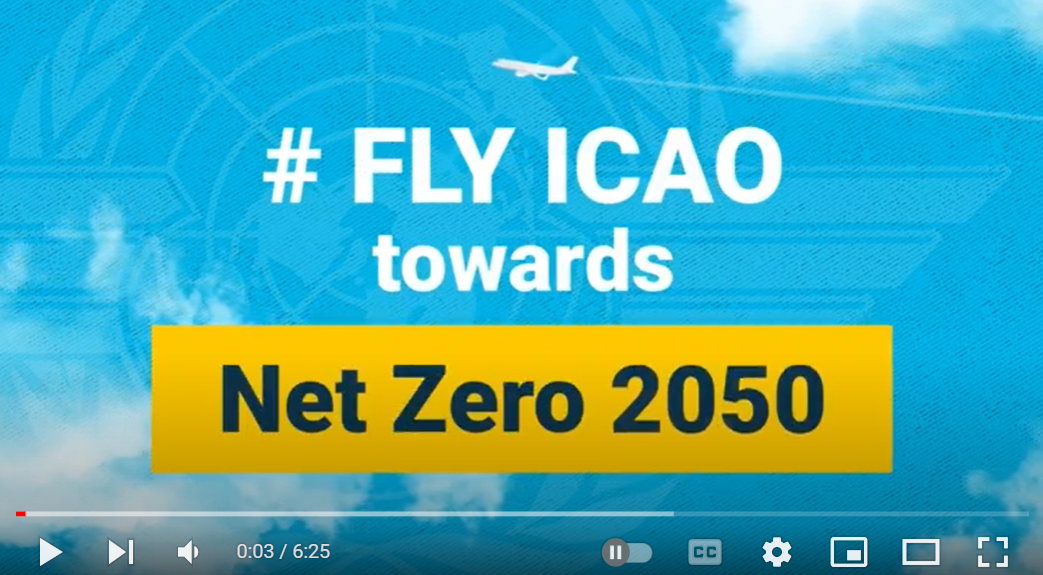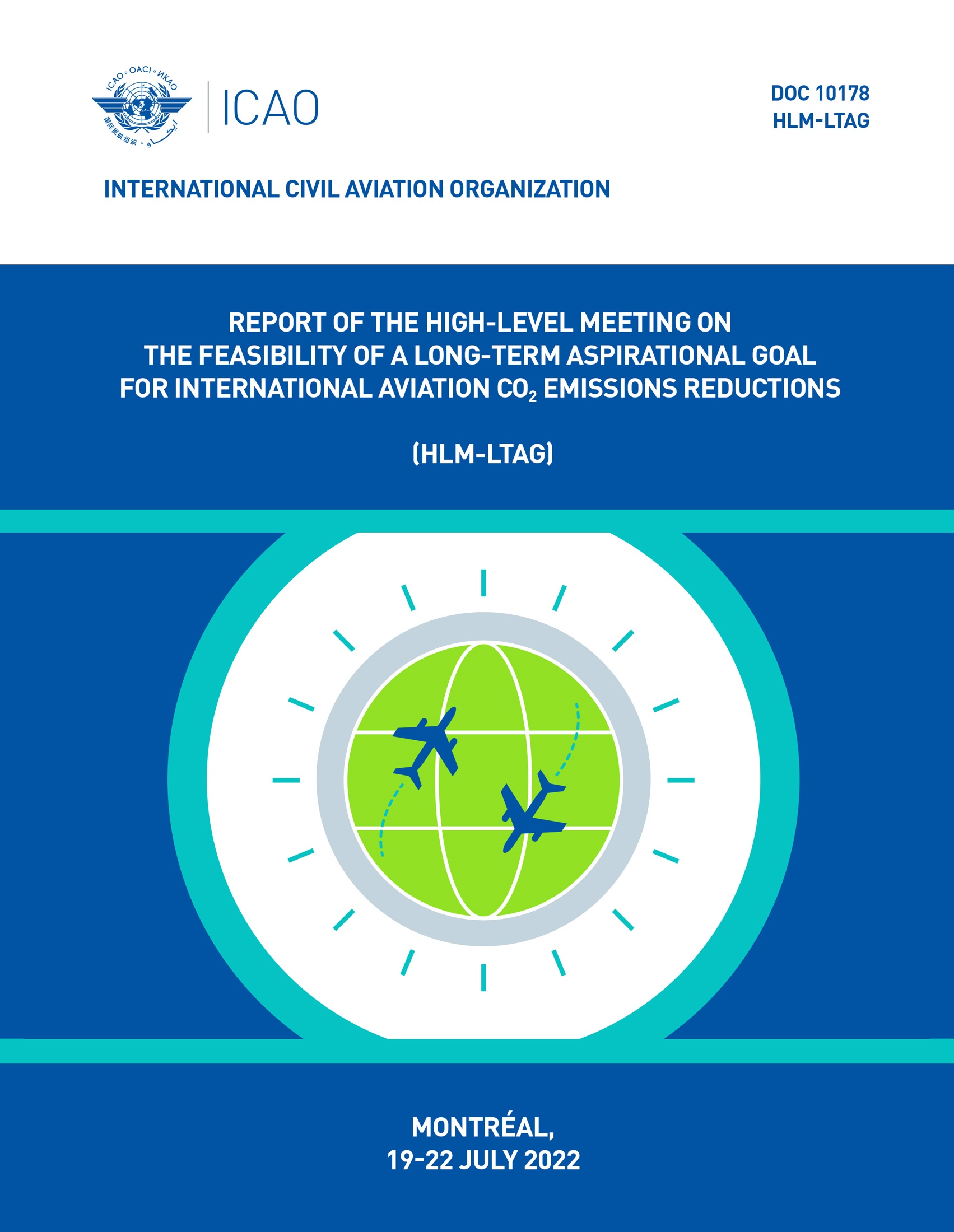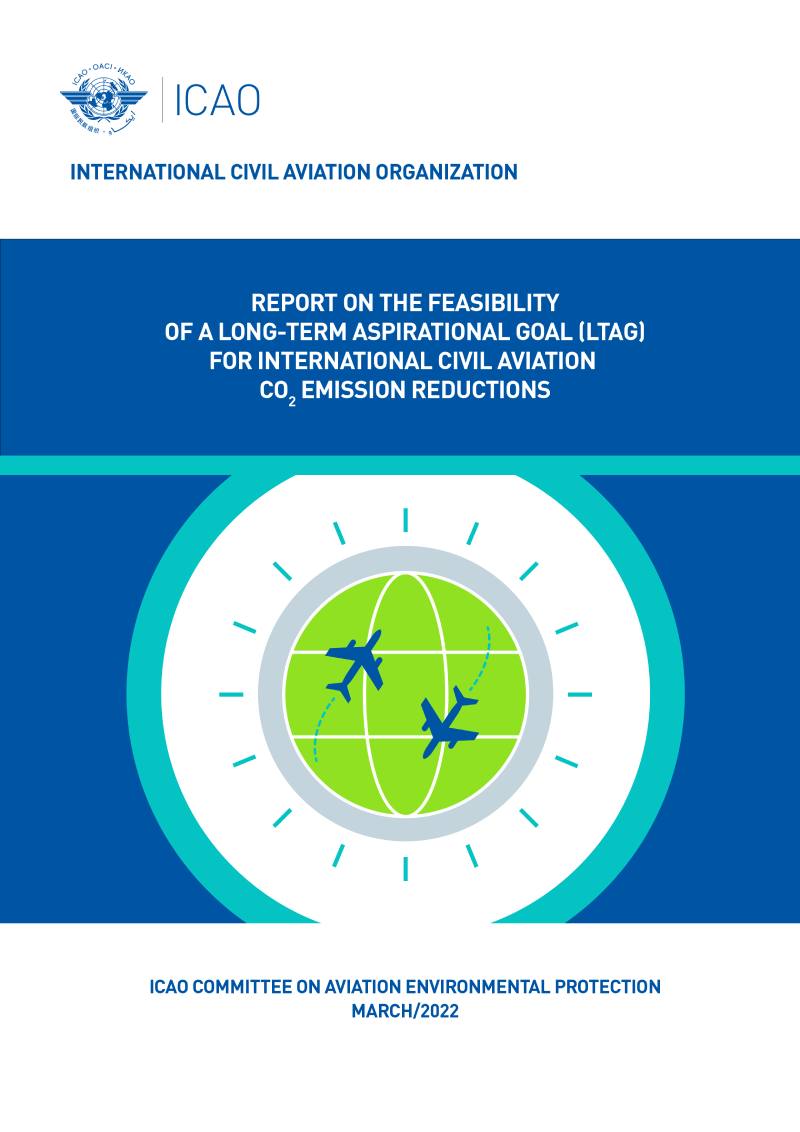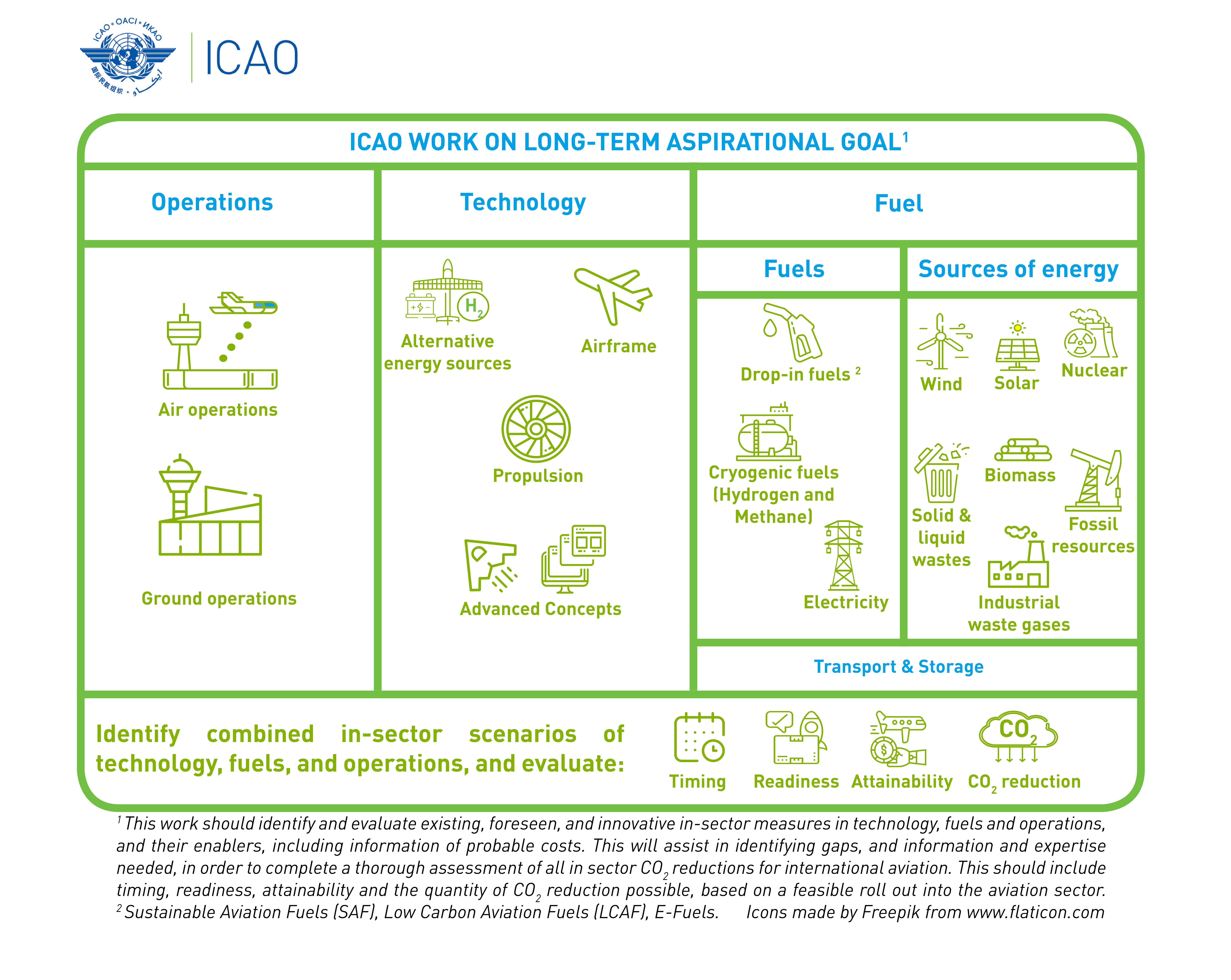Long term global aspirational goal (LTAG) for international aviation

The 41st ICAO Assembly adopted a long-term global aspirational goal (LTAG) for international aviation of net-zero carbon emissions by 2050 in support of the UNFCCC Paris Agreement's temperature goal. This is a historic agreement that reinforces the leadership of ICAO on issues relating to international aviation and climate change. The adopted Resolution A41-21 is available here.
 |
The LTAG does not attribute specific obligations or commitments in the form of emissions reduction goals to individual States. Instead, it recognizes that each State's special circumstances and respective capabilities (e.g., the level of development, maturity of aviation markets, sustainable growth of its international aviation, just transition, and national priorities of air transport development) will inform the ability of each State to contribute to the LTAG within its own national timeframe. Each State will contribute to achieving the goal in a socially, economically and environmentally sustainable manner and in accordance with its national circumstances.
This website provides detailed information on ICAO's work on LTAG, which is summarized in the following video.
LTAG and fuels
This website provides a description of the fuels-related information contained in the LTAG analysis, including links to the relevant documents with further details.
| |||||||
| ENGLISH | FRANÇAIS | ESPAÑOL | РУССКИЙ | عربية | 中文 |

LTAG Report
The LTAG Report present the background, methodologies, results and interpretations of the LTAG feasibility study developed by the ICAO CAEP. For transparency and comprehensiveness, a set of Appendixes is also available to provide more detailed information on modelling approaches, methodologies, models, assumptions, and the results.
The LTAG report is now available, in all the 6 ICAO Languages.

LTAG Data Spreadsheet
In addition to the LTAG Report, data developed by ICAO CAEP, as provided in the LTAG report, is available to support States that wish to their own analysis, noting that any additional analysis carried out by States will not be considered as part of the CAEP's work.
The LTAG Data Spreadsheet is available here.
LTAG - Questions and Answers
A compilation of the questions and answers exchanged, both verbally and in written format, during the first day of the five regional 2022 ICAO LTAG GLADs sessions has been published here.

Council briefing - LTAG report
A briefing outlining the approach, methodology, and high-level results and observations of the LTAG analysis is available at ICAO.TV.
Briefing on LTAG Feasibility Report by CAEP - Watch on ICAO.TV
Videos - LTAG Report Introduction
A description of the LTAG report is provided in the following videos, also in all the 6 ICAO Languages.

| ENGLISH FRANÇAIS ESPAGNOL РУССКЙ (coming soon) عربية 中文 |
2022 LTAG GLADs - 28 March to 8 April 2022
The ICAO Global Aviation Dialogues on Long-term Aspirational Goal (LTAG-GLADs) aim to raise awareness on the ICAO work on LTAG and facilitate the exchange of views amongst Member States. Click here for more information.
2022 ICAO Stocktaking – 18 July 2022
The 2022 ICAO Stocktaking will provide a further opportunity on the progress of innovations in aviation CO2 emissions reductions, and enable the sharing of the latest relevant information on technology, operations and fuels. This will set the scene for the subsequent ICAO High-level Meeting on the Feasibility of a Long-term Global Aspirational Goal (HLM-LTAG), to be held as a hybrid event from 19 to 22 July 2022.
LTAG High-level Meeting – 19 to 22 July 2022
The Meeting will bring together high-level officials from States who will have the authority to make policy commitments, as well as a number of international organizations with direct involvement in aviation and/or environment are also being invited to participate as Observers.
Other relevant LTAG documents
- Recommendations of the ICAO Council can be found in Assembly Working Paper A41-WP/368 (international aviation and climate change) and A41-WP/369 (update of Assembly Resolution A40-18). The report of the Executive committee is contained in A41-WP/658.
- The conclusions of the HLM-LTAG (also refer to ICAO Doc 10178 for HLM-LTAG Report).
The LTAG work is summarized in the diagram below:

The general timeline of LTAG work is provided in the image below:
Genera LTAG Work Timeline

The LTAG work at ICAO involves a series of actions to:
- Facilitate the involvement of relevant stakeholders outside the aviation sector to collect all information needed to support the exploration of the feasibility of a LTAG.
- Ensure that the best expertise is available for the assessment of the data, for the development of scenarios and for the assessment of the cost and benefits of scenarios.
- Keep ICAO Governing bodies informed and consulted during the process
- Ensure a transparent and inclusive process when consulting with States; and
- Provide a forum for the agreement of the possible options prior to the next ICAO Assembly.
All relevant stakeholders are invited to contribute to this ICAO work by submitting information through the ICAO Stocktaking Process.
ICAO is also working to share publicly-available information on in-sector CO2 emissions reductions activities through the ICAO in-sector aviation CO2 emissions reduction initiatives tracker tool. This tracker tool compliments the LTAG work by showcasing activities related to three streams of work: technology, operations, and sustainable aviation fuels.
